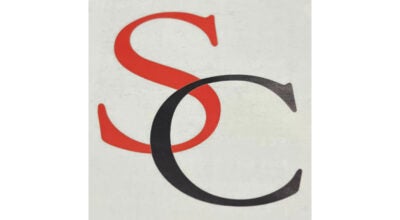School board updated on accreditation standards
Published 10:42 am Wednesday, June 13, 2018
COURTLAND
An update on the standards of accreditation was presented to the Southampton County School Board on Monday by Kelli Gillette, director of special programs and instructional services.
The case for reforms, she said, is that there is no credit for progress, an overemphasis on test preparation, achievement gaps are overlooked and a recruitment barrier exists for challenged schools.
Current graduation requires include only academic expectations of earning credits by completing courses and finishing verified credits through SOL exams.
Gillette added that students are expected to show they have acquired knowledge, but that colleges and employers have noted gaps in these graduates’ learning.
So the Virginia Board of Education has reformed graduation requirements in response to both those holes, as well as better prepare students for expectations, to create:
• Smoother transitions to “what comes next” after high school
• An awareness that “content knowledge” alone is not sufficient
• Stronger alignment with future projection of workforce needs
• Student experiences in higher order thinking and problem-solving
•••
There’s to be a new approach to workforce connections. Gillette told the board that Career Pathways will replace the former goal of “college and career ready.”
“‘College ready’ varies with the college targeted, and implied that college is not connected to a career,” she said. “Graduation becomes one step in a ‘plan’ to explore and select a career pathway, regardless of what that next step is immediately after high school.”
The state board has identified priority areas for its ‘Profile of a Graduate:’
• Expand the use of performance assessments and reduce the number of credits verified by SOL tests
• Increase internships and work-based learning experiences
• Increase career exposure, exploration and planning
• Emphasize the “5 Cs” (critical thinking, creative thinking, collaboration, communication and citizenship)
For example, in the commonwealth, a “life-ready’ individual will achieve and apply appropriate academic and technical knowledge; attain and demonstrate productive workplace skills, qualities and behaviors; align knowledge, skills and personal interests with career opportunities; and build connections and value for interactions with diverse communities.
•••
The requirements of a standard diploma is for first-time nine graders and beyond. For example, four standards of credit each for English or electives; three each for math, science, and history/social science; two each for health and P.E. and world language, fine arts and career and technical education; and one for economics and personal finance. Verified credits required are two for English and one each for math, science and history/social science
For an advanced studies diploma, first-time ninth graders and beyond will need four credits each for English, math, science, history/social science; three for word language and electives; two for health and P.E.; and one for fine arts or career and technical education and economics and personal finance. Verified credits required are same as above.
The map for an Applied Studies diploma includes a guide and six domains — English, math, science, history/social science, employment and independent living.
“The Applied Studies Curriculum Map provides a guide that teachers, students, families, and other team members can use to identify skills that will have a direct impact on the student achieving their postsecondary goals,” Gillette stated.
•••
SOA graduation requirements for 2018 freshmen and beyond:
• Five verified credits
Where verified credits are concerned, Gillette told the board, “Students may earn verified units of credit in any courses for which end-of-course SOL tests are available. Students shall not be required to take an end-of-course SOL test in an academic subject after they have earned the number of verified credits required for that academic content area for graduation, unless such test is necessary in order for the school to meet federal accountability requirements.”
• AP, IB, honors, industry certification — standard and advanced
“In accordance with the Standards of Quality, students shall either (i) complete an Advanced Placement, honors, or International Baccalaureate course, or (ii) earn a career and technical education credential approved by the board, except when a career and technical education credential in a particular subject area is not readily available or appropriate or does not adequately measure student competency, in which case the student shall receive satisfactory competency-based instruction in the subject area to satisfy the standard diploma requirements.”
• Demonstration of the aforementioned five C’s
• Academic and Career Plan Portfolio
“Beginning in the elementary school years, students are to explore the different occupations associated with career clusters and select an area or areas of interest. Students will begin the development of an Academic and Career Plan Portfolio (ACPP) in elementary grades to include information about interests, values such as dependability and responsibility, and skills supporting decisions about their future interests and goals.”
• Interest Inventory/Career Investigations Course/ACP
“Each middle school shall provide a course in career investigation in accordance with the provisions of 8VAC20-131-140.
“School divisions may seek alternate means of delivering the career investigation course provided it is equivalent in content and rigor and provides the foundation for a student to develop their Academic and Career Plans as described in 8VAC20-131-140.B.2. Possible alternative means to deliver the career investigation course could include, but not be limited to: online methods, middle school exploratory course options, and delivering the course content through other courses.”
• Credit accommodations
Additional pathways for students to earn credits required to graduate with a standard diploma.
The Academic and Career Development K-12 Continuum:
• Elementary School: Awareness and Exploration — students will begin the development of an Academic and Career Plan Portfolio.
• Middle School: Development and Planning — each middle school will provide a course in career investigation; an interest inventory will be taken; a career pathway developed; begin development of a person ACP for each seventh grader; and launch a program of study.
High School: Focus and Experiences — Will include rigorous and focused courses; work-based courses; and post-secondary credentials.





